A Hometown Crowd in Salisbury Pays Tribute to a Notable Native Son
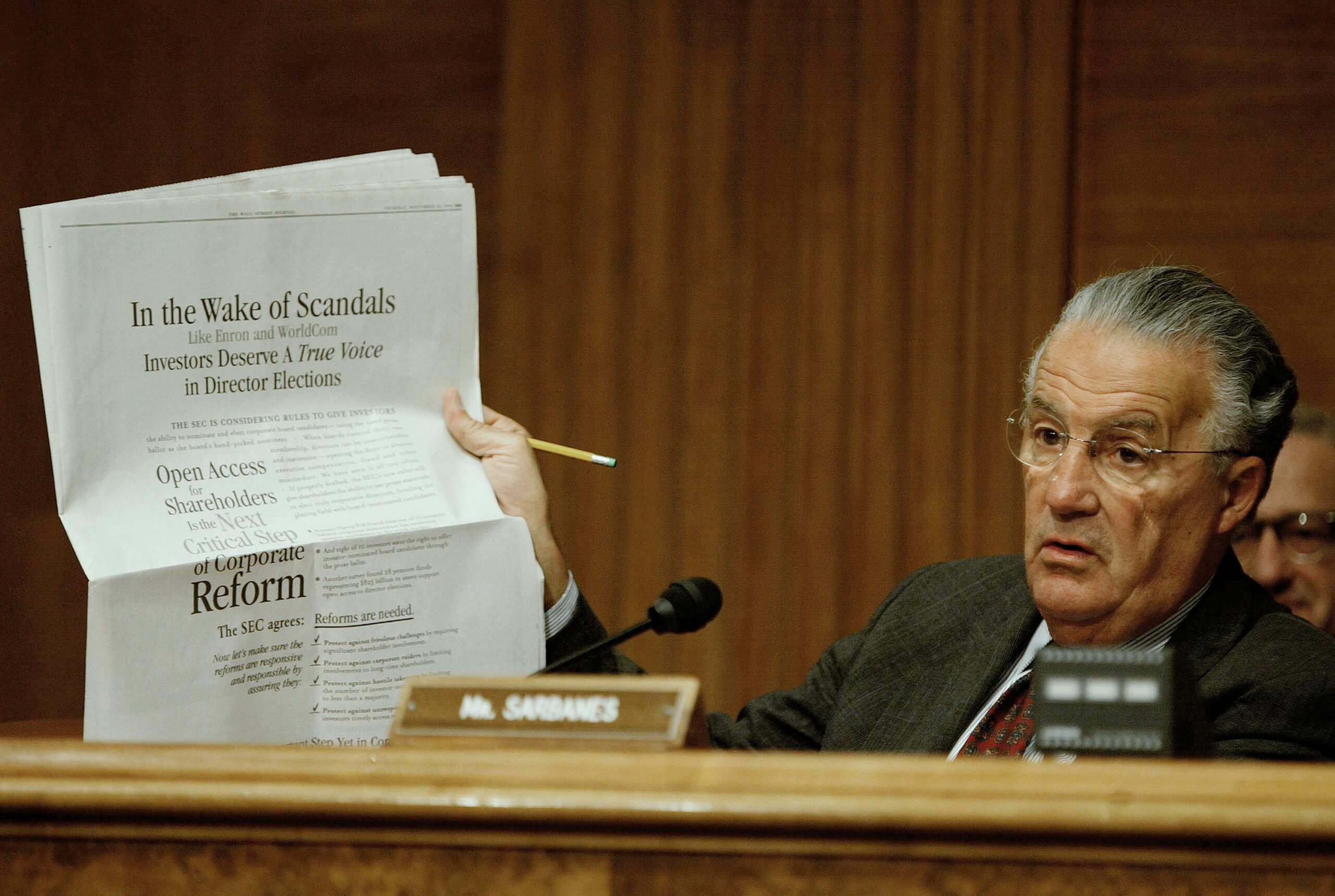
Sixteen months after his death, more than 200 family members, associates and friends of the late Sen. Paul Sarbanes gathered for an affectionate tribute to him Saturday evening in the Lower Eastern Shore city where he was born and raised.
Although his long political career — as the first Greek-American elected to the Senate, and as the first Maryland senator elected to five terms — was launched from a political base in Baltimore, his influence and that of his kin in the small but growing city of Salisbury was much in evidence during a dinner at Salisbury University. (The event — whose proceeds will benefit Salisbury University and the nearby University of Maryland Eastern Shore — had been scheduled for last November, but postponed due to the COVID-19 pandemic.)
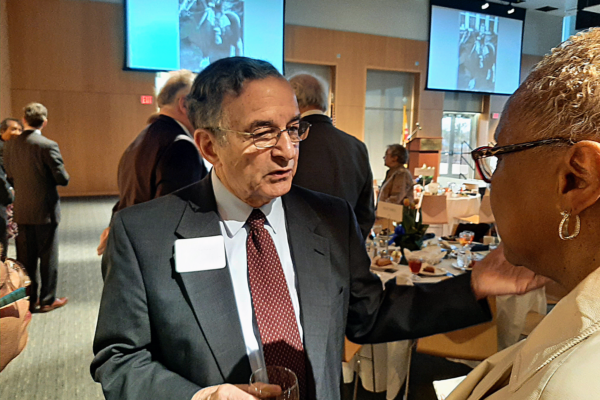
Anthony “Tony” Sarbanes paid tribute Saturday to his late brother, Sen. Paul Sarbanes, at a dinner at Salisbury University. Photo by Louis Peck.
While the dinner included reminiscences by Sarbanes’ son, Rep. John Sarbanes (D), who has represented a Baltimore-area district for the past 15 years, the featured speaker was the senator’s brother, Anthony “Tony” Sarbanes, a long-time teacher and administrator in the Salisbury school system who spent four years as president of the Wicomico County Council. The attendees included Tony’s son, S. James Sarbanes, now the administrative judge for the circuit courts in the four Lower Eastern Shore counties.
If the obituaries at the time of Paul Sarbanes’ December 2020 death focused on his Capitol Hill achievements — his key role in the impeachment of President Richard Nixon as a young U.S. House member, and later as co-author of the 2002 landmark “Sarbanes-Oxley” law that sought to prevent a recurrence of several major corporate financial scandals at the time — Saturday’s event was keyed to Sarbanes’ formative years when his parents, both Greek immigrants, ran the Mayflower Grill restaurant near the courthouse in downtown Salisbury.
It is a story that echoes the experiences of many immigrant families early in the 20th century, as Sarbanes — whose father had an eighth-grade education, and whose mother received no formal schooling beyond the third grade — went from Wicomico High School to a full scholarship to Princeton before becoming a Rhodes scholar and receiving a scholarship to Harvard Law School.
“Paul did not just embody the American dream — he spent his life in public service so that others would have a shot at the American dream,” Sen. Benjamin L. Cardin (D) — who entered the Maryland House of Delegates with Sarbanes in 1966, and would succeed him in the Senate 40 years later — said in a videotaped appearance at the outset of the dinner.
Those sentiments were later echoed by Rep. Sarbanes, who said his father’s “motivation was looking at his own life [as] the son of Greek immigrants, who came to this country with very little. Looking at that, and the opportunities he had for education and advancement, his motivation was to make those available to others.”
It was left to 85-year-old Tony Sarbanes to fill in many of the details of the early life of the man who would become Maryland’s second-longest serving senator ever (the state’s other five-term senator, Barbara Mikulski, outdistanced Sarbanes by 24 hours — 10,958 days to 10,957 — thanks to having served during one more leap year than her long-time colleague). Tony Sarbanes’ 25-minute speech recounting some early Paul Sarbanes stories was capped by the one standing ovation of the evening.
Actually, Tony pointed out, neither his family nor his friends called his brother “Paul” while he was growing up — but rather by the nickname of “Tykey.” Later, he was “Uncle Tykey” to nieces and nephews.
The name, Tony said during an interview prior to Saturday’s speech, is a diminutive of a Greek name corresponding to Paul, adding with a chuckle, “As he got older and more involved in in politics, I’m sure they all called him Paul. But if I called him Paul, he would think I was mad at him.”
Their father, Spyros Sarbanes, arrived in the United States as an immigrant at 16 from the Laconia region of southern Greece, aided by a half-brother already in the United States. Spyros later served in the U.S. Navy during World War I. “I once asked him what he did in the Navy, and he asked me ‘What do you think a Greek did aboard a ship?’” Tony told the Saturday gathering. Indeed, Spyros ran the mess hall, as the ships on which he served did convoy duty across the Atlantic.
Again following the lead of his half-brother, Spyros found his way to Salisbury in the late 1920s to open a restaurant. In 1932, a year before Paul was born, Spyros was married. His wife, Matina, also an immigrant from the Laconia region of Greece, was nearly 15 years his junior.
The marriage — like many immigrant marriages of that era — was in large measure arranged. “Her brothers brought my mother to this country, [and] one of the brothers knew my father’s first cousin,” Tony recalled during the interview prior to the dinner. “They got to talking, and the brother says, ‘Well, we brought my sister over here, now we’ve got to get her married.’ And the first cousin says, ‘Well, I have a first cousin that if he doesn’t hurry up and get married, he’s probably not going to get married.’”
He added, “So that was it, it’s not like they had a two- or three-year romance. But I will tell you that they were very devoted to each other.” The family lived above the Mayflower Grill — where Paul and Tony helped out by busing tables and washing dishes — until the early 1940s, when they moved to a house on the outskirts of Salisbury. A daughter, Zoe, was born shortly afterward.
Matina Sarbanes ran the restaurant for three years after her husband’s death of an apparent heart attack in 1957; she remained in the family home until her death, at 92, in 2001, when her oldest son was serving his final Senate term prior to his 2006 retirement.
Although Spyros rarely if ever spoke Greek at home, Matina used the language to communicate with her children. “As a youngster, Tykey was very fluent in Greek and actually less so in English,” Tony said of his brother, known during his Senate tenure as a highly articulate questioner with an ability to explain complicated legal issues to colleagues.
What the two parents shared was a determination that their children receive the formal education that had not been available to them.
“No one loved this country more than those two Greek immigrants,” Tony said. “I’ll always remember the comment [my father] made when Tykey was awarded the Rhodes scholarship. He looked at me and he said ‘Only in America could the son of immigrants receive the Rhodes scholarship’.”
His parents were considerably less thrilled when they discovered that, between his junior and senior years, Paul had gone for a tryout with a minor league baseball team. In addition to being an academic standout, the future senator excelled as an athlete: He was on a high school basketball team that lost the state championship by a point his senior year, and played shortstop on the baseball team, leading the team in hitting two years in a row.
During his brother’s tryout with the minor league team in Cambridge, “he was told to switch to second base because of his throwing arm and to come back the following summer,” Tony recalled, adding wryly, “Guess what? His plans changed when my parents found out.”
Their younger sister, now Zoe Pappas, picked up the story toward the end of the dinner. Paul, she said, “considered not going off to college. And my father was, of course, incensed and said to him, ‘You’re going to go to school, and when you finish school, you can opt for whatever you want to do. You can be a bum as far as I’m concerned — but you’re going to be an educated bum.’”
The upshot was Princeton; Paul became one of three graduating members of the 1950 class at Wicomico High School to attend the Ivy League school. At the time, Princeton “was looking to admit more public school graduates,” Tony noted.
Among out-of-town attendees to the dinner — which included the extended Sarbanes family and former Gov. Martin O’Malley and state attorney general candidate Katie Curran O’Malley — were two dozen former Sarbanes congressional staffers. Their presence prompted Tony to recall that his brother – known for a deliberative, lawyerly style on Capitol Hill — exhibited some of those characteristics growing up.
“He carefully thought about things before he made a final decision,” said Tony, looking toward a group of tables in the room and adding, “Where’s his staff? You know exactly what I’m talking about. That could be very frustrating to others. I’ll bet it was frustrating to his staff. How about being his brother or his sister or his children?” Chuckles could be heard from among the former aides.
Paul did not return to Salisbury after law school — although there were preliminary discussions about the possibility of a job at a local law firm, Tony indicated in the earlier interview. He instead went to work in Baltimore clerking for a federal judge, serving as executive director of a commission overseeing a rewrite of the Baltimore city charter and practicing law before winning election to the U.S. House in 1970 and the Senate in 1976.
But he often visited family home where his mother continued to reside — and did not hesitate to exercise his political clout on behalf of the area.
“There’s a tower out at the airport there because of my brother,” Tony Sarbanes said Saturday, alluding to the control tower at Salisbury Regional Airport, today the second busiest in Maryland. More than two decades ago, the request was initially resisted by federal aviation officials.
As Tony told the story, one official told him then, “You know senator, you can’t justify a tower in Salisbury. My brother said, ‘You know what, my mother and brother live in Salisbury, and sometimes I just catch a flight to Salisbury to go sailing.’” That prompted the official to respond, “You know, senator, I think we can build that tower,” Tony related, as the audience erupted in laughter.
Following his death in Baltimore, Paul Sarbanes was brought back to Salisbury to be buried next to his parents at the family plot, a couple of miles from the site of Saturday’s dinner. Also interred there is his wife, Christine, who died in 2009; the couple met during his time as a Rhodes scholar.
“…I take comfort in the fact that their final resting place is here, together, in Salisbury,” said John Sarbanes as the dinner came to a close.
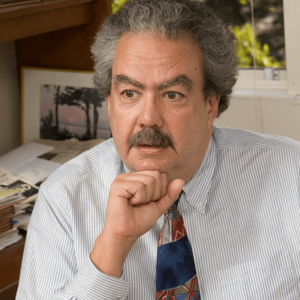
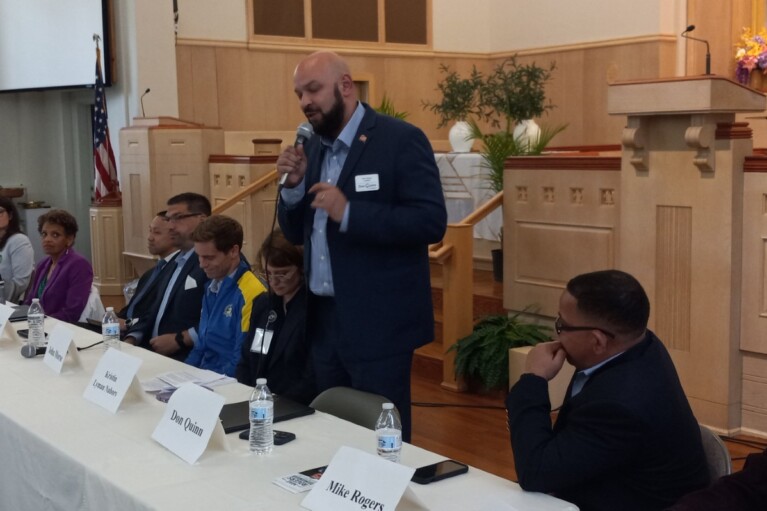

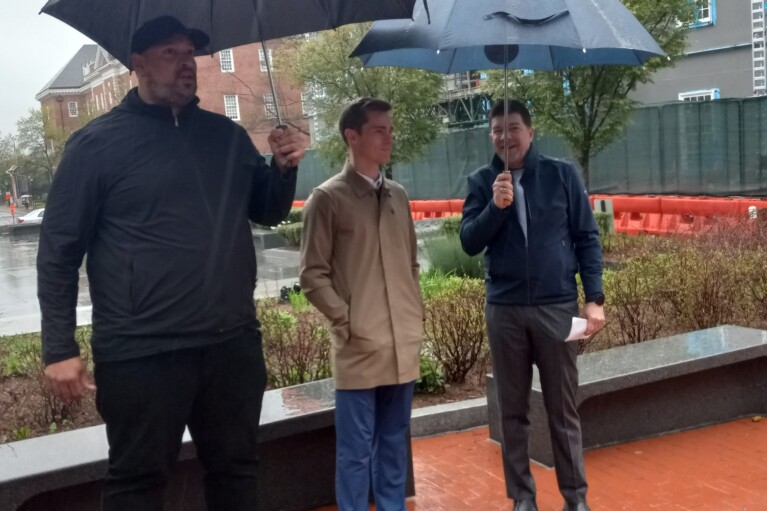
 Creative Commons Attribution
Creative Commons Attribution